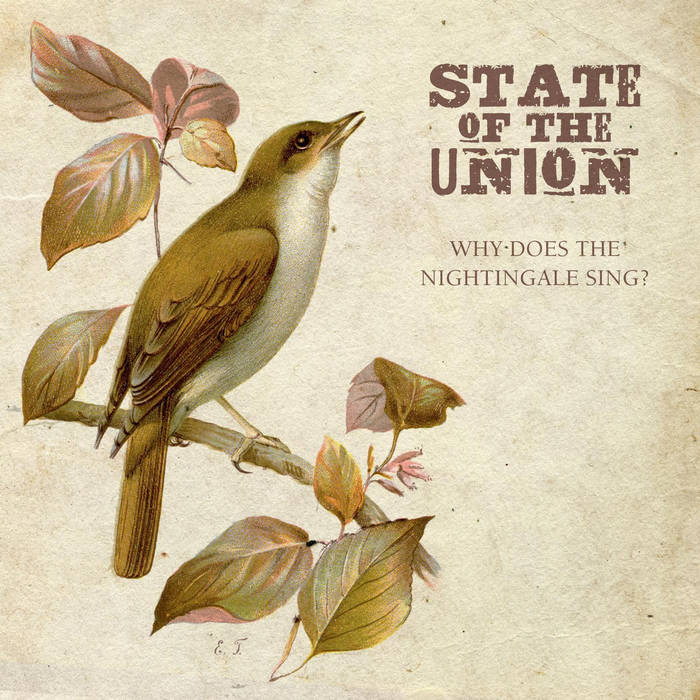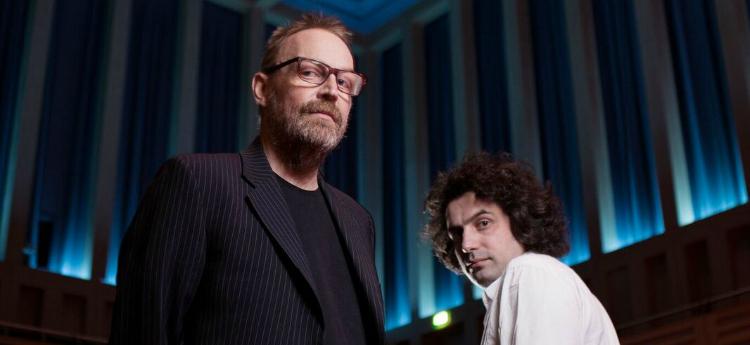A new album by Boo Hewerdine is always an occasion for bell-ringing, carousing and general rejoicing. In short, it’s something to look forward to. ‘Before’ is no exception. Except ‘looking forward to’ is perhaps the wrong phrase, because this is another impeccable collection of those irresistibly old-fashioned songs in which Boo excels.
He admits as much himself in ‘Old Songs,’ in praise of the ancient melodies that had families gathered in parlours singing with grandad, a pint of stout and a woodbine. ‘Sing us an old song,’ he begs, ‘one we all know, that lives in our memories from so long ago.’ It’s a lament for a simpler, happier time when families didn’t disappear into their devices and Netflix box sets on a Friday evening. Not only does it seem like it was written about the 1930s, it sounds like it was written then too. What makes Boo’s music so audacious is that he attempts (and usually succeeds) in creating brand new classics.
There are two theories. Either he has a stash of Sinatra and Nat King Cole albums that no one else has heard, and is slowly releasing the songs, or else he has an ear trumpet that reaches all the way back to 1937. His ability to transport you back to the golden age of popular song is consistently astonishing.
Last Rays of the Sun is a nostalgic, elegiac reflection on ageing, with toy piano accompaniment. ‘We see true beauty in the last rays of the sun.’ It’s one of those luminous, mid-pace numbers that Boo has made his own. His McCartney-esque melody is a counterpoint to the gloomy ruminations, the metronomic ticking in the background reminding us of the unstoppable march of time.
One of the many delicious quirks of this album are the extra tracks between the songs – eccentric instrumentals that foreshadow the main songs. For example, the one before Before is called Before Before. It’s a little confusing, but you get the idea. These are recorded in bizarre, creaky, arrangements on what sound like Japanese banjos and toy pianos. They’re like those odd, lean-to sheds that are squeezed into the gaps between houses. My favourite is Prepared, a funky, lo-fi interlude that threatens to turn into something interesting before vanishing into the ether.
If the opening track is a reflection on advancing years, then Imaginary Friends is a bittersweet look back at childhood spent on bicycles riding ‘by the old canal.’ It conjures images of a lonely existence, but with the consolation of a vivid imagination. It’s graced with beautiful instrumental passages, descending lines and unusual instrumentation.
Silhouette is the first of the true classics, beginning with a delicate, timpani-like accompaniment, rather like opening a music box. The lyric is masterful ‘When shadows are your own company, then you’re a silhouette.’ While classic sounding, the melodies are genuinely affecting, reliably inventive and freshly minted.
The title song, Before, continues the purple patch. Except this time, we’re not merely returning to the early 20th century. Instead Boo transports us back several million years ago, to an unspoilt planet Earth untroubled by human meddling. ‘Come with me and understand, this was never our own land.’ It’s a brilliantly original take on conservation, climate change and a warning against hubris. We weren’t around for billions of years and the Earth did just fine without us.
Reno is something of a departure; a low-key country balled, complete with mournful dobro. ‘Don’t go to Reno’ is Boo’s advice – ‘you won’t come back this time.’ By the resigned tone of his singing, he doesn’t believe you’ll follow his advice. He knows you’ll be led into temptation.
Undoubtedly the jewel of the collection is Starlight, a song he had already gifted to Eddie Reader. She delivers an ethereally beautiful cover; yet Boo’s stripped back version is arguably better. His voice is high and keening and the melody utterly mesmerising. If it found its way into a Disney film it would earn him a million pounds.
Wild Honey is another magical tune, with fragmented poetic lyrics, but like so many of the songs on Before, it’s tinged with melancholy. That’s perhaps why the optimistic, defiant sounding ‘I Wish I Had Wings’ is such a welcome closer. I imagined hundreds of synchronised swimmers performing to it, in a lavish finale to an MGM musical. ‘I know these words aren’t much, but I don’t care/I can hear an orchestra it’s in the air.’
One day, these new songs will become old songs and people will appreciate more than they do now. Bravo Boo Hewerdine on a first-class return.
Before is released in September.





